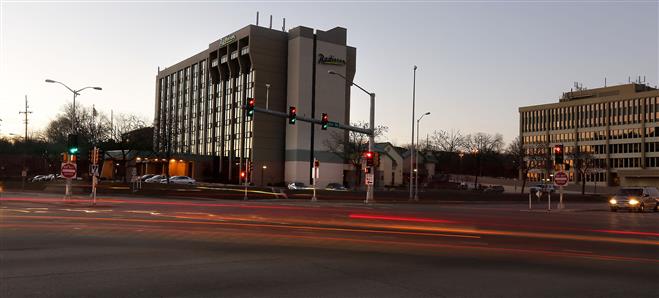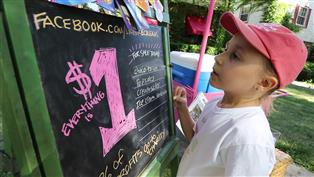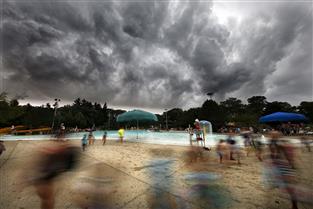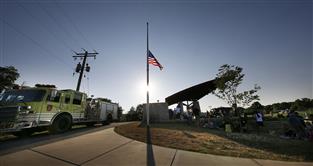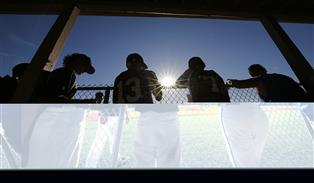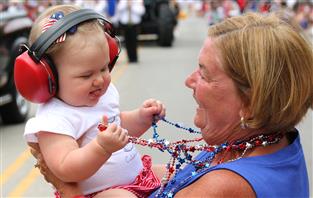Room tax spending change opposed
Wauwatosa expects to collect $930,000 in hotel and motel room taxes next year. It plans to send more than 30 percent of that money — $319,000 — to VISIT Milwaukee to promote tourism. And it would use the rest to bolster its general fund, promote economic development, pay for parades and events, and help the budgets of the Police, Fire and Public Works departments.
A bill in the state Legislature would reverse those percentages, requiring the city to send 70 percent to VISIT Milwaukee, with the city keeping just 30 percent.
The Wauwatosa Common Council has approved a resolution opposing the change.
"This is a complicated issue — fasten your seatbelt," said Trisha Pugal, president of the Wisconsin Hotel and Lodging Association.
The basics
A 1967 state law, modified in subsequent years, allowed municipalities to impose a room tax on paid overnight stays at hotels and motels, with an 8 percent cap. Wauwatosa charges 7 percent, which is in addition to state and county taxes, pushing the total tax on a room to more than 15 percent, said Patrick Palmer, general manager of the Crowne Plaza Hotel.
A 1994 modification required municipalities to spend 70 percent of that money on tourism promotion and development, as defined in the statute. But the law included a grandfather clause that allowed municipalities, including Wauwatosa, to keep the same percentage for local spending that they did in that year.
"What the legislation is doing is trying to get, across-the-board, that everybody, all municipalities, would eventually ... give at least 70 percent to tourism promotion and development," Pugal said. After all, she added, "it is a tax on tourists."
Other features of the bill would allow lodging establishments to keep 3 percent of the total local room tax they collect, as a kind of processing fee. And, while current law allows a municipality to define for itself what tourism promotion means, and/or to send money to a tourism entity, such as VISIT Milwaukee, the new law would require the funding to be sent to a tourism entity, or to a body created by the municipality with the majority of its members from the tourism industry — people who run restaurants, attractions or lodging businesses.
Paying for services
Pugal's organization, in promoting the bill, views a city like Wauwatosa as using tourism funding to subsidize city services for local residents. Cities counter that visitors, like residents, generate Police and Fire calls — by the hundreds a year in Wauwatosa — and should pay for that coverage.
Nicholas Zavos, a lobbyist for the city of Madison, which opposes the bill, said it's a false dichotomy to so narrowly define "tourism spending" as to exclude fire trucks and snow plows. Also, he said, in a memo, the economic benefits of tourism spending don't contribute directly to the municipality — don't add to property tax collections — except in the form of a room tax. He likens the room tax to tolls paid for the use of some roads — a driver pays for the strain he puts on the resource.
For City Administrator Jim Archambo, an even more fundamental issue is at stake. The bill would require the city to forward its room tax revenue to a tourism entity that is not directly accountable to taxpayers. City Attorney Alan Kesner called it "bad policy."
"The council feels that there are a lot of uses for the money, besides giving it to a specified organization," Kesner said.
The regional issue
The real problem may be regional, Kesner and Archambo said.
"It sounds like they're trying to fix a problem that exists up north," Archambo said, "where you've got such a predominance of tourism — tourism as a part of the economy — (and) hotel/motel taxes as a funding mechanism for that. If that's the case, I'm not sure making rules to fix a problem up north apply to the whole state; I think that creates more problems than it fixes."
The bill is now in committee in both the Senate and the Assembly.
More from News and Features
- Anodyne Coffee plans to open location in Wauwatosa Village
- Wauwatosa Meetings: Aug. 4
- Video: Wauwatosa girl's curbside ice cream stand raises money for the hungry
- Wauwatosa News and Notes: Hands-only CPR training offered; Firefly Art Fair is Aug. 6-7
- Wauwatosa Ask Now: Why are there barriers and fencing along the North Avenue bridges over the Menomonee River?
- Mystery Photo Contest: July 28
- Wauwatosa gears up for National Night Out event, this year at the zoo
- Election 2016: Wisconsin's 4th District candidates weigh in
- Wauwatosa's Luther Manor residents share smiles through flower delivery
- Wauwatosa Police Report: July 17-23





